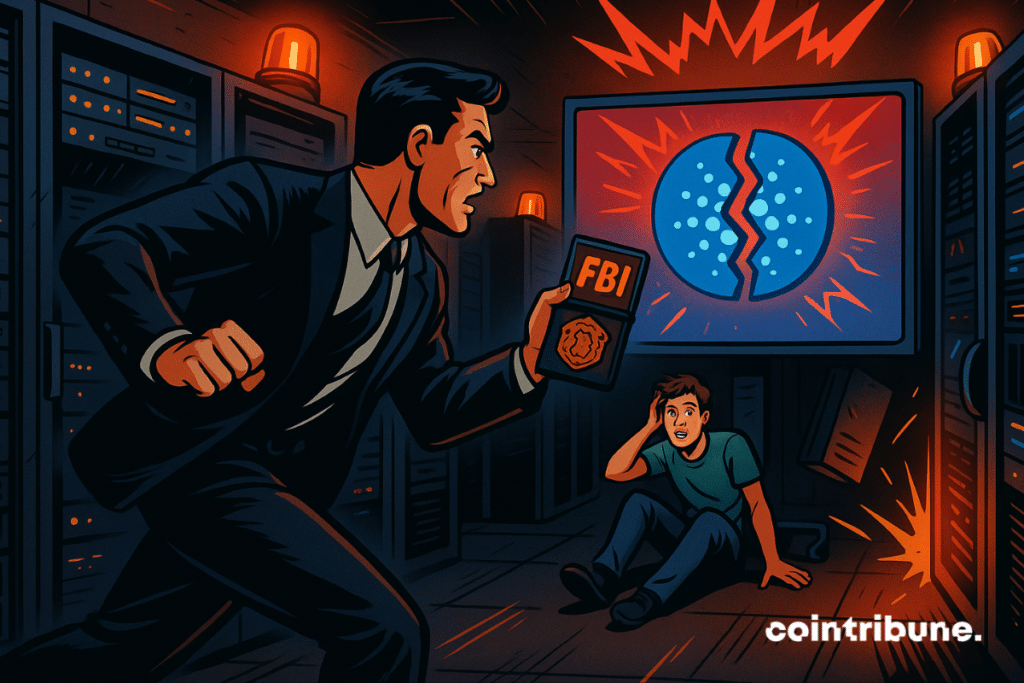FBI Called In After Developer’s Error Triggers Cardano’s First Major Chain Split in Eight Years
Cardano experienced a sudden disruption on November 21 when a carefully designed transaction revealed a weakness in its network software. The flaw triggered the network’s first significant chain split in eight years. For a certain period, the blockchain operated on two separate chains before operators acted promptly to address the problem. Following the incident, Cardano notified the relevant authorities, including the FBI, to investigate the matter.

In brief
- Cardano faced its first major chain split in eight years after a carefully crafted transaction exposed a flaw, briefly dividing the network into two competing chains.
- The individual behind the incident admitted the mistake stemmed from a personal challenge and following AI instructions without testing.
- Charles Hoskinson confirmed that the incident had been reported to the relevant authorities and the FBI.
Cardano Network Split and Emergency Response
Intersect, a major organization within the Cardano ecosystem, outlined how the disruption unfolded. The group reported that the mainnet encountered a targeted anomaly around 08:00 UTC on November 21, 2025. This incident occurred a day after a similar event had been observed on the Preview testnet.
How the incident unfolded in the Cardano network:
- The incident began when a delegation transaction with errors was run on the Cardano mainnet, activating a flaw in a software library that the network’s checks did not catch.
- This led the blockchain to temporarily divide into two separate chains—one including the faulty transaction, the other continuing normally
- The sudden division caused uncertainty across the network and prompted key teams in the Cardano ecosystem to act quickly to restore stability.
Teams from Input Output, the Cardano Foundation, Intersect, and other contributors initiated an emergency response. Despite the split, Cardano’s network continued operating. Blocks were produced on both versions of the chain, and some transactions appeared across both.
To ensure ledger accuracy, most exchanges and external service providers temporarily halted deposits and withdrawals. Coinbase recorded the longest pause, keeping activity suspended for roughly 14 hours. Other major platforms, including Upbit and Kraken, implemented shorter suspensions while confirming the correctness of the blockchain.
Homer J Owns Up to Cardano Error
Meanwhile, the individual, who goes by the username “Homer J” on X, claimed to be responsible for the incident, which he said began as a personal challenge to replicate a previously problematic transaction. The problem arose after he followed AI-generated instructions to block all network traffic on his Linux server without testing the method on a testnet first. The full scale of the mistake became clear only when block production appeared frozen on public explorers.
Homer J emphasized that there was no malicious intent, no attempt to profit, and no collaboration with anyone. He also confirmed that he did not sell or short ADA before the incident and acknowledged that his actions now carried serious personal consequences.
Even with the apology, Cardano founder Charles Hoskinson described the act as a personal decision. He noted that Homer J was “trying to walk it back because he knows the FBI is already involved.” To provide clarity to the community, Hoskinson also circulated a fact sheet confirming that the matter had been escalated to the relevant authorities and law enforcement agencies.
Resignation Inside the Development Team
Following the escalation and Hoskinson’s involvement of federal agents, an Input Output Global employee resigned publicly. The staff member, known on X as “effectfully,” cited concerns that development mistakes could now carry legal risks.
He recalled making serious errors during simulated security tests and seeing colleagues make similar mistakes, admitting that he had not realized such errors could expose him to investigations. The employee confirmed that he had submitted his resignation and added that any future work on the computational layer would require significantly higher compensation due to the unforeseen risks.
Maximize your Cointribune experience with our "Read to Earn" program! For every article you read, earn points and access exclusive rewards. Sign up now and start earning benefits.

Ifeoluwa specializes in Web3 writing and marketing, with over 5 years of experience creating insightful and strategic content. Beyond this, he trades crypto and is skilled at conducting technical, fundamental, and on-chain analyses.
The views, thoughts, and opinions expressed in this article belong solely to the author, and should not be taken as investment advice. Do your own research before taking any investment decisions.